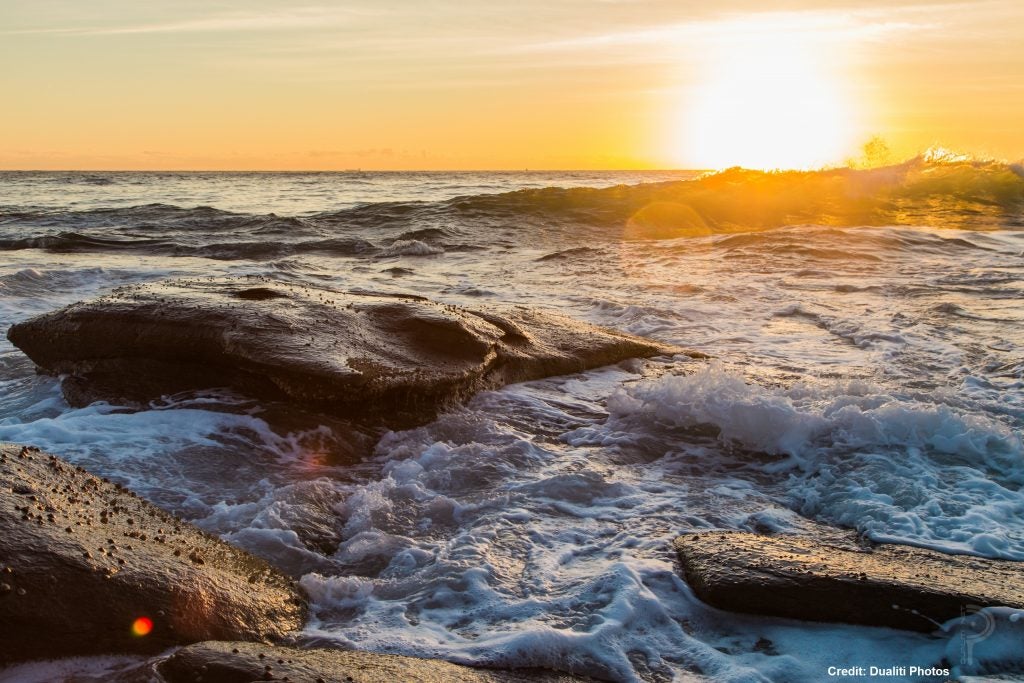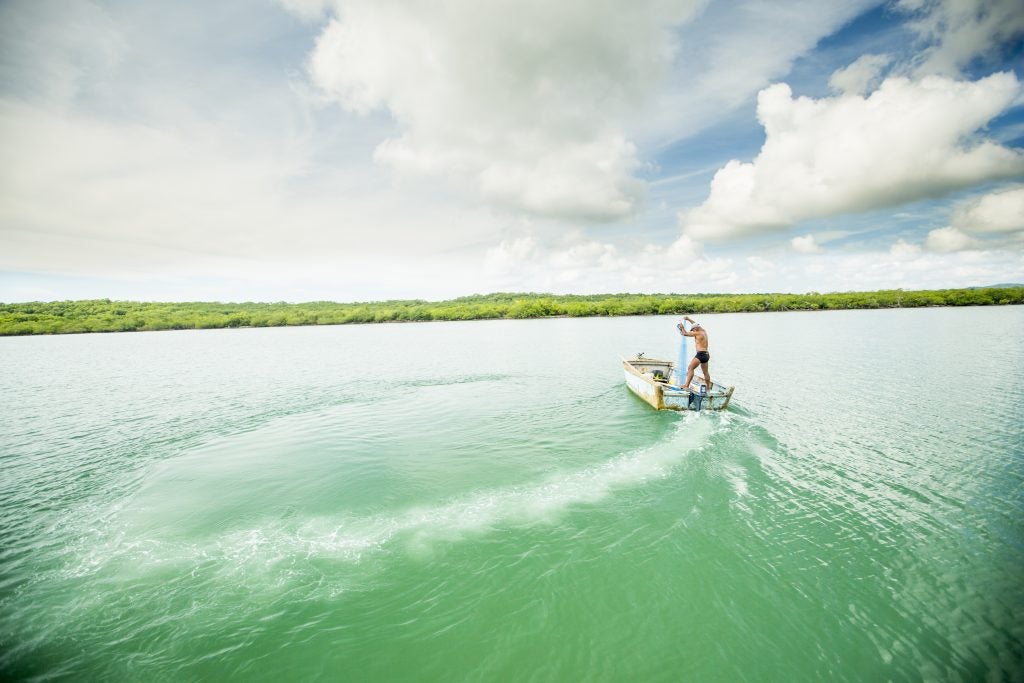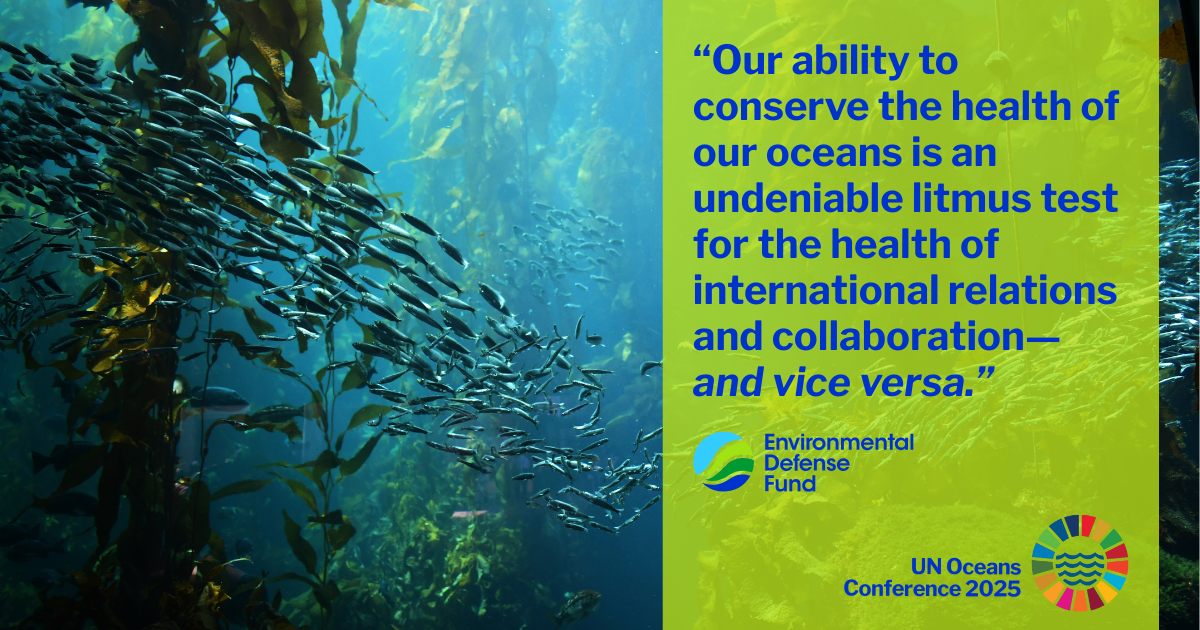Hope for the oceans in a time of COVID-19
 The global COVID-19 pandemic gives us all pause about what the future holds. Our focus and attention are on all those hurt by this terrible disease. But for many of us, this is also a time of deep reflection about society and the world we’ll inhabit when this scourge is over. So for me, it’s also a moment to reflect on the prospects for the ocean, one of the planet’s fundamental life-support systems — making it vital to human health and well-being.
The global COVID-19 pandemic gives us all pause about what the future holds. Our focus and attention are on all those hurt by this terrible disease. But for many of us, this is also a time of deep reflection about society and the world we’ll inhabit when this scourge is over. So for me, it’s also a moment to reflect on the prospects for the ocean, one of the planet’s fundamental life-support systems — making it vital to human health and well-being.
A just-released article in Nature, by Professor Carlos Duarte of King Abdullah University of Science and Technology in Saudi Arabia and colleagues, argues that the global ocean can once again return to abundance, rebounding from overfishing and pollution by 2050, if humanity puts its shoulder to the wheel and redoubles efforts across all types of threats. We emphatically agree.
Here, we dive into what such lofty ambitions might require, through one of the key lenses that Duarte and company identify: sustainable fishing.
First, peer-reviewed research shows very clearly that sustainable fisheries management works. That should come as no surprise. Our own work with University of California, Santa Barbara and others (Costello et al., 2016) modelling the world’s fisheries showed that the “upside” of informed and effective management rapidly outweighs the downside of unsustainable fishing (which would otherwise deplete more than 85% of fish populations). Our modelling shows that such management approaches would allow full rebuilding of most stocks (and total global fish abundance) in less than a decade — restoring fish as a valuable asset both for nature and human needs. This exciting finding was recently underscored by a deep and systemic analysis (Hilborn et al., 2020) showing that, in fact, when good management is put in place, fish and fisheries respond impressively.
This result is robust even when reasonable levels of climate warming are accounted for, as demonstrated by a second global upside model published in Science Advances (Gaines et al., 2018). That study showed that while climate change will cause significant problems for both fish and the people who rely on them, management systems that take both fish population movement and shifting production potential into account can overcome these challenges, except under the most severe warming scenarios.
Thus, we completely agree that this central threat to the world ocean can — at least in theory — be successfully addressed, as Duarte and company suggest. But, is this just ivory tower dreaming?
 Sustainable fisheries are possible in the real world, too. The turnaround in fisheries management in the United States shows the potential for reform. Since 1996, the successful implementation of the Magnuson-Stevens Act that governs fisheries management and sets rules for stock sustainability remains the greatest conservation success story never told. The key in the U.S. was the combination of top-down governance (including requirements for sustainability planning, fish population assessment, catch monitoring and accountability) and bottom-up implementation, based on collaborative work with fishing enterprise owners and communities, with notable results coming from access rights systems.
Sustainable fisheries are possible in the real world, too. The turnaround in fisheries management in the United States shows the potential for reform. Since 1996, the successful implementation of the Magnuson-Stevens Act that governs fisheries management and sets rules for stock sustainability remains the greatest conservation success story never told. The key in the U.S. was the combination of top-down governance (including requirements for sustainability planning, fish population assessment, catch monitoring and accountability) and bottom-up implementation, based on collaborative work with fishing enterprise owners and communities, with notable results coming from access rights systems.
This approach should work throughout the higher-resource world, which is demonstrated by generally similar progress in northern Europe and Oceania. A strong new law in Japan and important advances in China show that countries around the world understand just how important investing in the future of their fisheries will be. The translation on the water in these places will not be the same as the U.S. or northern Europe, but there is absolutely every reason to expect that solutions will work in these cultures.
Similarly, systems-level transformation is possible for fisheries in less resource-rich situations. A startling example is underway in Belize, where long-standing but underperforming networks of marine protected areas, or MPAs, were buttressed with two trials and later, nationwide sustainable fisheries management using co-management approaches proven to work in the developing world. This system has been quite successful and led directly to the recent three-fold expansion of the MPA system, and then the adoption of national sustainable fisheries legislation.
 But there is work left to do in Belize, especially on the large numbers of finfish that are critically important both to local consumption and coral reef ecosystem health. If we’re able to fully integrate the protection of key habitats like mangroves and seagrass beds that also store carbon, then the prospects are good for completing this transformation. A very similar new law was adopted in Cuba, and collaborative work is also underway there toward climate-resilient fisheries.
But there is work left to do in Belize, especially on the large numbers of finfish that are critically important both to local consumption and coral reef ecosystem health. If we’re able to fully integrate the protection of key habitats like mangroves and seagrass beds that also store carbon, then the prospects are good for completing this transformation. A very similar new law was adopted in Cuba, and collaborative work is also underway there toward climate-resilient fisheries.
Note that this strong combination of MPA systems, which work better because they are strongly coupled to sustainable fisheries management systems, is also identified in the Duarte paper as a powerful “wedge” for the future. We believe this approach can be generally applied throughout the coral world and the developing tropics. It seems likely that more will be required in that hot zone: better emphasis on carbon-storing habitat protection and enhancement, and perhaps even sustainable aquaculture and other human development approaches, depending on just how serious the world becomes about addressing climate emissions — and how severe the declines in maximum fisheries production in that zone become. This integrated approach is a recipe for success.
A major advantage is that there are impressive networks of people who care about the world’s most vulnerable — very often dependent upon small-scale fisheries for livelihoods and nutrition — and global organizations ready to take these lessons and spread them rapidly to communities around the globe.
These experiences and others have shown clearly that climate-resilient fisheries management is a real-world possibility, not an ivory tower fantasy. EDF has recently published a report on key lessons for climate resilience in fisheries, based in part on excellent guidance coming from the U.N. Food and Agriculture Organization.
Prospects are good for clarifying the best approaches for achieving sustainable fisheries. Parallel hopeful visions have been released by the High Level Panel for a Sustainable Ocean Economy and others.
COVID-19 has appropriately led to the cancellation or slowdown of many events that we oceaneers hoped would make 2020 the “Year of the Ocean.” Perhaps this is a good time, even as we work together to respond to this crisis, to recommit ourselves to doing what we can for the planet’s future.












